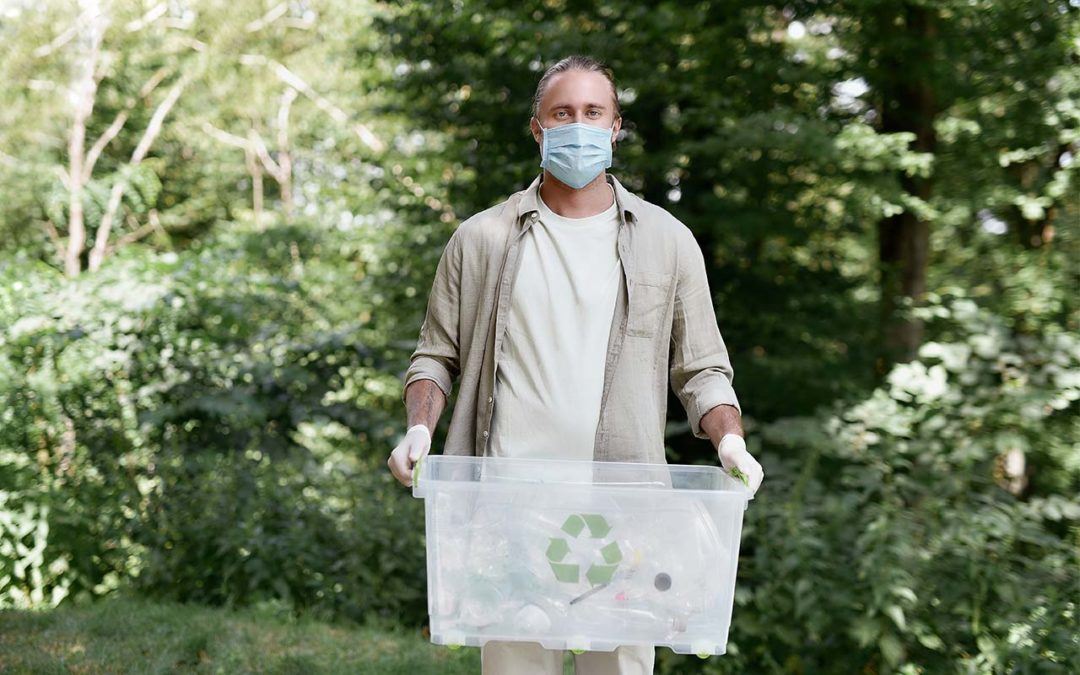Although many of our daily habits may have been altered during the duration of the COVID-19 pandemic, recycling should remain as prevalent as ever.
With so many people creating more waste at home, recycling has become critical. The raw material supply chain is seeing shortages worldwide, especially paper and cardboard. With an increase in home deliveries, recycling your household products could help increase the materials available for manufacturing essential items such as toilet paper, paper towels, and general packaging.
A few new considerations should be thought about to protect waste management workers from the ongoing pandemic.
Recycling Packaging From Deliveries
With the lockdowns, stay-at-home orders, and in-store shopping bans, many people have seen an increase in household online purchases. E-commerce sales nearly doubled last May, online grocery orders increased by 9.2% and online furniture orders were up by 7.2%. Amazon alone saw a 38% jump in sales in the last year. With these increases comes a natural increase in the quantity of packaging material used.
Although many companies such as Amazon do not provide adequate information, recipients should do their research and recycle the packaging properly. Simple actions like this will ensure the supply chain remains open and other essential items are manufactured.
Check out our blog about recycling Amazon packaging for some useful information!
Toss Out Contaminated Objects
More important than keeping supply chains open is keeping our waste management staff safe. Any items that have come into contact with someone who tested positive for COVIDd-19 should be handled differently than non-contaminated items.
Dedicate a lined trashcan to the ill person. Keeping all the contaminated items in one place ensures there is no cross-contamination. When removing the garbage bag, gloves should be worn and the waste should be double bagged. Isolate this waste for at least 72 hours before putting it on the curb for pick-up.
What about PPE?
There has been a huge increase in the amount of personal protective equipment (PPE) being used. Masks, gloves, and wipes are very important in keeping us safe, but they do not belong in the recycling bin. Not only are they not made of recyclable material, they can contaminate a whole batch of recycling and re-route it to the landfill. By ensuring our PPE is put in the garbage bin, we can protect of waste management workers from unnecessary infections.
Reduce and Reuse
This one shouldn’t come as a surprise to anyone. The best thing we can do is reduce our waste and reuse everything we can. At the start of the pandemic, grocery stores weren’t allowing reusable bags. This meant more plastic was entering the consumer household. It is perfectly safe to reuse these plastic bags. Whether it’s to line your trashcans or pick up your dog’s poop, give these and other plastics a second life.
Some items can be avoided entirely. Online shopping is not the only thing that has seen a huge jump. Takeout has seen a surge in popularity as well. With restaurants not able to host diners, opting for takeout is the only other option. Many orders still come with napkins and plastic cutlery. Next time you order from your favourite eatery, ask them to omit the cutlery. There is no reason not to use the silverware you have at home and simultaneously reduce the amount of single-use plastic being thrown in the bin.
